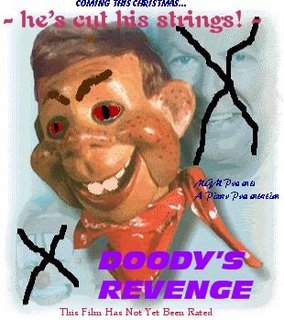
World War lll is brewing in the Middle East. Iran still views the USA as Satan, most Arabs hate the Jews and they want Israel under Arab control. Iran through it's puppet, the Hezzbollah, are firing rockets into Israel, via Lebanon, and Israel is firing back and destroying the Lebanese infrastructure. Lives are lost on both sides.
The lifestyle in the USA has gotten very decadant since back in my day. Arabs are opposed to our lifestyle. I'm opposed to the lifestyle of many degenerates. In fact I'll concede that the majority of Americans are opposed to the lifestyle of those that engage in drugs and elicit sexual activity. Unfortunately most of us are not in control of the way we are portrayed in the media. And the media has the big mouth. So now matter how much the larger populace feels, the USA comes across looking much like Sodom and Gommorah. The Muslim nations do not want to live in the same manner as they assume all of us live in the USA. They need to visit the Midwest.
So the Muslims want life to be pure and Godly, but I read things like the following article and I am concerned that there is seemingly a double standard. Is this the mindset of Islam? Are there any Muslims that would stand up and set the record straight?
Read on:
BATMAN, Turkey (July 16) -- For Derya, a waiflike girl of 17, the order to kill herself came from an uncle and was delivered in a text message to her cellphone. “You have blackened our name,” it read. “Kill yourself and clean our shame or we will kill you first.
Derya said her crime was to fall for a boy she had met at school last spring. She knew the risks: her aunt had been killed by her grandfather for seeing a boy. But after being cloistered and veiled for most of her life, she said, she felt free for the first time and wanted to express her independence.
When news of the love affair spread to her family, she said, her mother warned her that her father would kill her. But she refused to listen. Then came the threatening text messages, sent by her brothers and uncles, sometimes 15 a day. Derya said they were the equivalent of a death sentence.
Consumed by shame and fearing for her life, she said, she decided to carry out her family’s wishes. First, she said, she jumped into the Tigris River, but she survived. Next she tried hanging herself, but an uncle cut her down. Then she slashed her wrists with a kitchen knife.
“My family attacked my personality, and I felt I had committed the biggest sin in the world,” she said recently from a women’s shelter where she had traded in her veil for a T-shirt and jeans. She declined to give her last name for fear that her family was still hunting her. “I felt I had no right to dishonor my family, that I have no right to be alive. So I decided to respect my family’s desire and to die.”
Every few weeks in Batman and the surrounding area in southeast Anatolia, which is poor, rural and deeply influenced by conservative Islam, a young woman tries to take her life. Others have been stoned to death, strangled, shot or buried alive. Their offenses ranged from stealing a glance at a boy to wearing a short skirt, wanting to go to the movies, being raped by a stranger or relative or having consensual sex.
Hoping to join the European Union, Turkey has tightened the punishment for attacks on women and girls who have had such experiences. But the violence has continued, if by different means: parents are trying to spare their sons from the harsh punishments associated with killing their sisters by pressing the daughters to take their own lives instead.
“Families of disgraced girls are choosing between sacrificing a son to a life in prison by designating him to kill his sister or forcing their daughters to kill themselves,” said Yilmaz Akinci, who works for a rural development group. “Rather than losing two children, most opt for the latter option.”
Women’s groups here say the evidence suggests that a growing number of girls considered to be dishonored are being locked in a room for days with rat poison, a pistol or a rope, and told by their families that the only thing resting between their disgrace and redemption is death.
Batman (pronounced bot-MON) is a grim and dusty city of 250,000 people where religion is clashing with Turkey’s official secularism. The city was featured in the latest novel by the Turkish writer Orhan Pamuk, “Snow,” which chronicled a journalist’s investigation of a suicide epidemic among teenage girls.
In the past six years, there have been 165 suicides or suicide attempts in Batman, 102 of them by women. As many as 36 women have killed themselves since the start of this year, according to the United Nations. The organization estimates that 5,000 women are killed each year around the world by relatives who accuse them of bringing dishonor on their families; the majority of the killings are in the Middle East.
Last month, the United Nations dispatched a special envoy to Turkey to investigate. The envoy, Yakin Erturk, concluded that while some suicides were authentic, others appeared to be “honor killings disguised as a suicide or an accident.”
“The calls keep coming,” said Mehtap Ceylan, a member of Batman’s suicide prevention squad. She said she had very recently received a call about a 16-year-old girl who had committed suicide, her family said, because they would not let her wear jeans. But when Ms. Ceylan visited the house, neighbors told her the girl had been a happy person and had been wearing jeans for years.
“The story just doesn’t add up,” Ms. Ceylan said. “The girl’s family says their daughter was eating breakfast, walked into the next room and put a gun to her head. They were acting as if nothing had happened.”
Psychologists here say social upheavals in a region rocked by terrorism have played a role in the suicides. Many of the victims come from families in rural villages who have been displaced from the mountains to the cities because of warfare between Turkey and a Kurdish guerrilla group that wants to create an independent state for Kurds in southeastern Turkey.
Young women like Derya, who have previously led protected lives under the rigid moral strictures of their families and Islam, are suddenly finding themselves in the modern Turkey of Internet dating and MTV. The shift can create dangerous tensions, sometimes lethal ones, between their families and the secular values of the republic that the young women seek to embrace.
The price can be heavy. When a woman is suspected of engaging in sexual relations out of wedlock, her male relatives convene a family council to decide her sentence. Once news of the family’s shame has spread to the community, the family typically rules that it is only through death that its honor can be restored.
The European Union has warned Turkey that it is closely monitoring its progress on women’s rights and that failure to progress could impede its drive to enter the union.
Until recently, a family member of a dishonored girl, usually a brother younger than 18, would carry out the death sentence and receive a short prison sentence because of his youth. Sentences also were reduced under the defense that a relative had been provoked to commit murder.
But in the past two years, Turkey has revamped its penal code and imposed life sentences for such killings, known as honor killings, regardless of the killer’s age. This has prompted some families to take other steps, such as forcing their daughters to commit suicide or killing them and disguising the deaths as suicides.
In an effort to bring honor killings out from underground, Ka-Mer, a local women’s group, has created a hot line for women who fear their lives are at risk. Ka-Mer finds shelter for the women and helps them to apply to the courts for restraining orders against relatives who have threatened them.
Ayten Tekay, a caseworker for Ka-Mer in Diyarbakir, the regional center, said that of the 104 women who had called the group this year, more than half had been uneducated and illiterate. She said that in some cases the families had not wanted to kill their relatives but that the social pressure and incessant gossip had driven them to it.
“We have to bring these killings out from the shadows and teach women about their rights,” she said. “The laws have been changed, but the culture here will not change overnight.”
Derya, fiercely articulate and newly invigorated after counseling, said she was determined to get on with her life. “This region is religious and it is impossible to be yourself if you are a woman,” she said. “You can either escape by leaving your family and moving to a town, or you can kill yourself.”
Derya said the underlying problem was inequality between the sexes, even though the prophet Muhammad argued in favor of empowering women.
“In my village and in my father’s tribe, boys are in the sky while girls are treated as if they are under the earth,” she said. “As long as families do not trust their daughters, bad things will continue to happen.”
There are some Christian and Jewish sects that would go so far as to shun or exclude a member of their family until they make restitution, become penitent and change their life ways. I agree that in the original Mosaic Laws there were provisions for stoning, but this has not been practiced for centuries. So who can tell me, Is this the norm for those of the Islam faith? Is murdering a family member for an indiscretion a normal practice of the faith? If so, please look around. We are now in the year 2006.


PI.gif)











































